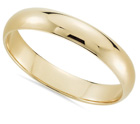- Details
- Parent Category: Africa
 Bridal lingerie can be so different. Some underwear pieces are sexy, others are delicate and meant to represent purity and virginity, still others are intricate and complicated in design. Every bride is able to pick whatever she likes and feels comfortable in. Traditional and historical underpinnings are another matter entirely – their design and decorations should be certain, sometimes strictly set. The traditional Tunisian below-the-knee pantaloons probably wouldn’t be considered seductive or tempting by most modern European men. But for modest and conservative Tunisians, such bridal lingerie peeking from under the wedding attire was truly captivating.
Bridal lingerie can be so different. Some underwear pieces are sexy, others are delicate and meant to represent purity and virginity, still others are intricate and complicated in design. Every bride is able to pick whatever she likes and feels comfortable in. Traditional and historical underpinnings are another matter entirely – their design and decorations should be certain, sometimes strictly set. The traditional Tunisian below-the-knee pantaloons probably wouldn’t be considered seductive or tempting by most modern European men. But for modest and conservative Tunisians, such bridal lingerie peeking from under the wedding attire was truly captivating.
- Details
- Parent Category: Africa
 In Tunisia, many couples still choose to have a traditional wedding ceremony, with traditional wedding rituals and activities. It usually lasts up to a week and is a very cheerful, loud, and colorful event. A lot of rituals are centuries-old and occur in other countries of the Arab world as well. But the most impressive feature of a Tunisian wedding is that the bride is practically covered with gold jewelry – she wears so many gold jewels that you keep wondering how she manages to stand upright with such a weight.
In Tunisia, many couples still choose to have a traditional wedding ceremony, with traditional wedding rituals and activities. It usually lasts up to a week and is a very cheerful, loud, and colorful event. A lot of rituals are centuries-old and occur in other countries of the Arab world as well. But the most impressive feature of a Tunisian wedding is that the bride is practically covered with gold jewelry – she wears so many gold jewels that you keep wondering how she manages to stand upright with such a weight.
- Details
- Parent Category: Africa
 Tunisian grooms traditionally gave their brides-to-be a very beautiful, valuable, and clever wedding present – it was a pair of gold or silver anklets. By this gift, grooms not only showed off their wealth and status but also invented some cunning tricks to find out more about the appearance of their future wife – remember that marriages were often arranged at the time and women covered their body with baggy clothes that hid their body curves, so men had very little chance to know what their bride looked like before the wedding.
Tunisian grooms traditionally gave their brides-to-be a very beautiful, valuable, and clever wedding present – it was a pair of gold or silver anklets. By this gift, grooms not only showed off their wealth and status but also invented some cunning tricks to find out more about the appearance of their future wife – remember that marriages were often arranged at the time and women covered their body with baggy clothes that hid their body curves, so men had very little chance to know what their bride looked like before the wedding.
- Details
- Parent Category: Africa
 Tunisian brides traditionally aren’t shy to display their wealth. More than that, the more gold she had on, the more respect and envy her groom got because a lot of her jewelry pieces were his gifts to her. In the past, all this gold was her personal fund – she could buy, sell, exchange, or present her jewels however she liked, without her husband’s permission. It was her way of being independent and her insurance. Tunisians treasured gold highly, that’s why you’ll see so much gold embroidery on the bride’s costume below.
Tunisian brides traditionally aren’t shy to display their wealth. More than that, the more gold she had on, the more respect and envy her groom got because a lot of her jewelry pieces were his gifts to her. In the past, all this gold was her personal fund – she could buy, sell, exchange, or present her jewels however she liked, without her husband’s permission. It was her way of being independent and her insurance. Tunisians treasured gold highly, that’s why you’ll see so much gold embroidery on the bride’s costume below.

